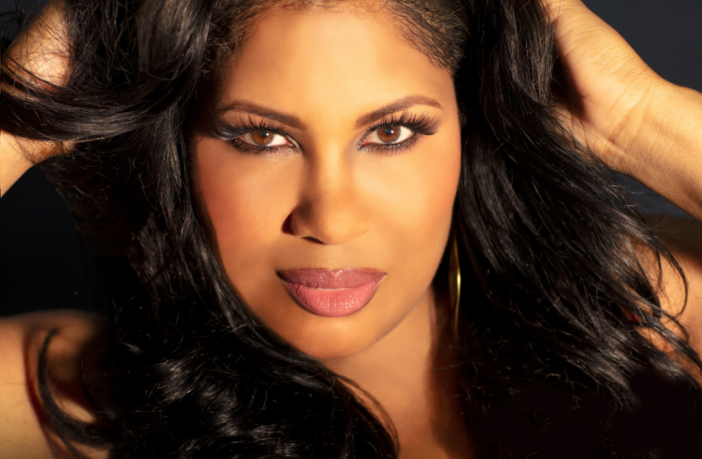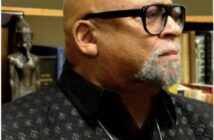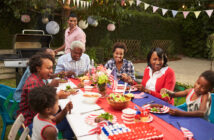It’s not easy for singer, music producer, songwriter, and actress Nicki Richards to pin down a hometown. In a recent interview with the Amsterdam News, she said, “My father was in the military, so every two years, we would move to another state.”
In addition to always being the new kid, Richards was also usually the youngest. “I was smart, so I would test out of my grade and end up being the youngest [in my class].” Not surprisingly, Richards always felt, and was made to feel, out of place. Luckily, she had music. “Music kind of saved me and kept me sane when [I was] the only Black kid, and nobody wanted to talk to me. I escaped into music.”
Still, music didn’t protect Richards from all life’s problems. She recalls playing clarinet and being passed over for first chair at school in the Deep South, something she believes was due to racism. “I played the clarinet and smoked everybody with my skills, but could only get as far as second chair. In the Deep South, I was never going to make first chair.”
Ironically, Richards had turned to the clarinet after some not-so-subtle discouragement when it came to playing her first instrument of choice. “They told me, ‘You can’t play the trumpet. Your lips are too big.’ And I was so young, I didn’t know how to respond. Now I would say, ‘Louis Armstrong.’ Now I could clap back. But when you’re a kid, I was like, ‘Wow, okay, what should I do?”
Richards brought her talents to Harlem on Sept. 26, on a double bill with Amanda Homi, presented by the Harlem Speakeasy at the OneTwoSeven Soundstage.
For her show, in addition to playing fan-favorite songs from her previous albums, Richards performed her newest single, “Anything,” which she describes as “having a New Orleans, slightly second-line style feel to it.” An anthem of inspiration, the lyrics remind the listener, “You can do anything if you put your mind to it. I wrote it for my nieces and the young women in my family, and really for myself on the days when I felt down — you know, reminding myself that even when things get tough, that I just have to buckle down and I can figure something out.”
Hailing from a musical family, Richards started her learning early. “My grandmother was choir director at five different churches,” she said. “My mother was a singer. She started in the church but was the rebel and jumped out of singing in the church, and went and sang more worldly music, mostly jazz.”
The way she acquired her musical skills was as improvisational as jazz. “I was always in a new school, so it was always a different instrument or a different vocal ensemble or sort of different thing that I was learning. It was a piecemeal education, but it was great.” Of course, there was an international element to her musical exposure as well. “I fed off of that. My father’s taste of music was so eclectic. Being in the Navy, his friends were from all over the world, so I was influenced in that way as well.” And of course, there were the artists she often heard on radio and saw on TV that further fueled her passion to perform. “I wanted to be Stevie Wonder. I wanted to be Prince. Diana Ross was very glamorous and larger than life. And Gladys Knight just sang with so much passion and emotion.”
After winning Star Search in her teens, Richards was signed to Atlantic Records by record exec Ahmet Ertegun, after which she went on to write and record several albums, all of which she produced and arranged. The list of top artists with whom she’s recorded and performed is vast, and includes Madonna, Mariah Carey, Whitney Houston, Mick Jagger, Michael Jackson, Tina Turner, Gloria Estefan, Celine Dion, Stevie Wonder, Linda Ronstadt, Mary J. Blige, Missy Elliott, Lenny Kravitz, Lady Gaga, Bette Midler, Maxi Priest, Al Green, and many, many more. Much of Richards’s musical style has been cool R&B — a cross between Melba Moore, Vanessa Williams, and Karen White. Unlike some other artists, Richards always had a passion for writing and producing. “I wanted to be as prolific as a Prince or a Stevie Wonder or Paul McCartney or George Duke,” she recalled. “Those were my heroes.”
She also observed that there weren’t a lot of women who also produced. “There were women [who]wrote music, but not a lot [who]played instruments and produced, so Roberta Flack is a big influence for me.”
Her outsider position enabled her development in music production. “I spent a lot of time observing on my own, because I was always the new kid in a town. I had a rich fantasy life, and I would amuse myself by writing songs. We also had this little, tiny electronic keyboard, and I would make music, so I started out being self-taught.”
Women in the music business is an issue that Richards feels still needs more attention. “I think about the fact that female producers are still only 1% of all producers. I might be wrong about that statistic, but I know it’s still pretty low, so some things still need changing.”
Richards tries to bring the gift of a diverse musical palette to young people. “I love it when I talk to aspiring musicians and I ask them about their musical tastes. The response I get is, ‘Oh, I listen to all kinds of music.’ Then they’ll list only two genres! I love the idea of opening up their musical world by talking to them about what I know. I am a big nerd when it comes to music, and I love to share all of this information.”For more info, visit www.nickirichards.com.
Like this:
Like Loading…



